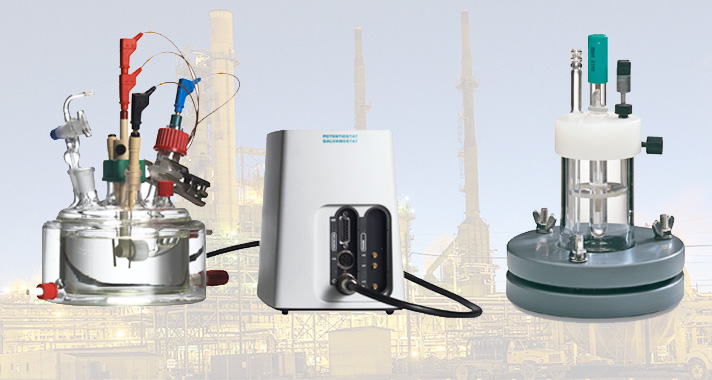Electrochemical analysis methods are becoming increasingly common for quantifying corrosion rates. The most important electrochemical methods for corrosion testing are linear polarization (LP), electrochemical noise measurement (ECN), and electrochemical impedance spectroscopy (EIS).
Corrosion – a universal problem
- Corrosion is one of the main issues petrochemical industry has to tackle.
- Corrosion degrades the mechanical properties of metal surfaces, lowering their performances.
- Pipelines, for example, are affected by corrosion induced by environment around them, such as oil, hot temperatures, seawater and microbes.
- It has been reported that the corrosion in pipelines counts for over than 20 million USD per year, in USA.
Electrochemistry in corrosion research
- Corrosion is an electrochemical process and it is of primarily importance to understand its mechanism to choose proper solutions, such as coatings and sacrificial anodes.
- Studies on corrosion are conducted mainly via electrochemical techniques, like linear polarization and electrochemical impedance spectroscopy.
- Metrohm Autolab offer complete solutions for corrosion studies, like FRA32M module, for impedance spectroscopy experiments the AUTOLAB PGSTAT204, PGSTAT302N and the floating instrument PGSTAT302F, and electrochemical cells according to ASTM standards.
- With the Autolab NOVA software, it is possible to conduct not only the built-in corrosion experiments, but it is also possible to build tailor-made procedure for any desired experiment.









